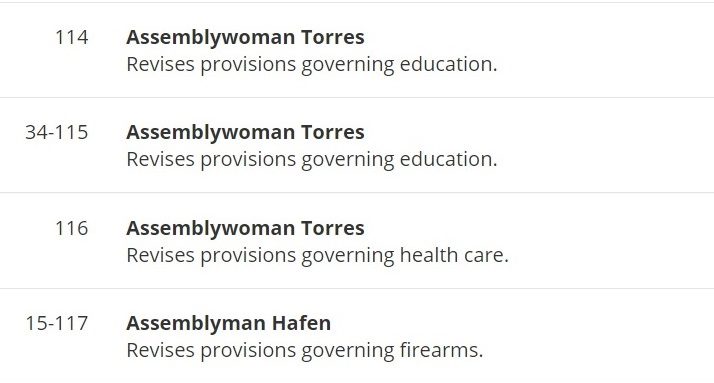A look at proposed bills for the coming Nevada legislative session demonstrates that transparency appears to rank low on lawmakers’ list of priorities.
This is evident when one reads the many bill draft requests – the first step in the legislative process – already filed.
Nevada requires lawmakers seeking to introduce legislation to submit a bill draft request, or BDR, for each proposed bill. Requests can come from legislators, legislative committees, the governor, state agencies and local governments. These go to the Legislative Counsel Bureau, which puts them in the proper language. Each request comes with a summary, which is posted online.
Bill draft requests for the 2023 session have been coming in for more than a year. Nevadans, though, will remain uninformed about the basics of many bills until shortly before they’re introduced.
This is because lawmakers often choose ambiguity over transparency when they submit bill summaries. This lack of openness not only looks bad, but it also impairs Nevadans’ ability to voice concerns on proposals they see as problematic.

Consider a bill draft request submitted on Aug. 1, 2022: Its summary simply reads, “Revises provisions related to state-owned automobiles.”
This imprecise language could mean anything from requiring state-owned cars to have GPS navigation to mandating that all state vehicles be rocket-powered. In other words, the summary doesn’t say much of anything.
Nevadans are fortunate that language has already been written for this bill, which was introduced as Assembly Bill 26 on Nov. 16. The bill, filed by the Assembly Committee on Government Affairs on behalf of the purchasing division of the Department of Administration, would require state entities purchasing automobiles to “give preference to automobiles that will minimize long-term operating costs and greenhouse gas emissions.”
As with many bills, AB 26 may be controversial. But the ability to discern the goals of the proposed legislation, and to mount opposition a person or group deems necessary, is hindered when individuals and organizations don’t have time to get up to speed on proposed legislation.
As of Jan. 22, more than 900 bill draft requests had been filed. Of these, the Legislative Counsel Bureau has converted fewer than 140 into bills. How opaque is the current process? Of the more than 100 bill draft requests concerning education, fully 21 contain the simple summary of “Revises provisions relating to education.”
Forcing residents to wait until bills are fully written – which may not be until the session is underway – is no way to run a transparent and responsive government. Especially troublesome is the fact that it doesn’t have to be this way.
According to the Legislative Counsel Bureau’s research division, requested bills are added to the BDR list in the order received “so that the public has notice of subjects that may be considered in the next legislative session.”
But the public has little chance of learning about subjects in a timely manner if lawmakers hide bills behind vague summaries.
This isn’t the fault of the Legislative Counsel Bureau, which can only write bills so fast. The blame lies with lawmakers who fail to provide adequate details in their bill summaries to keep constituents properly informed.
The lack of transparency shouldn’t be surprising. Remember, our state legislature decided years ago that even though it has the power to pass and repeal laws that dictate how we live our lives, it isn’t subject to state open meeting laws.
Experience has taught us that entitlement and vagueness is never a good look for a legislative body.
